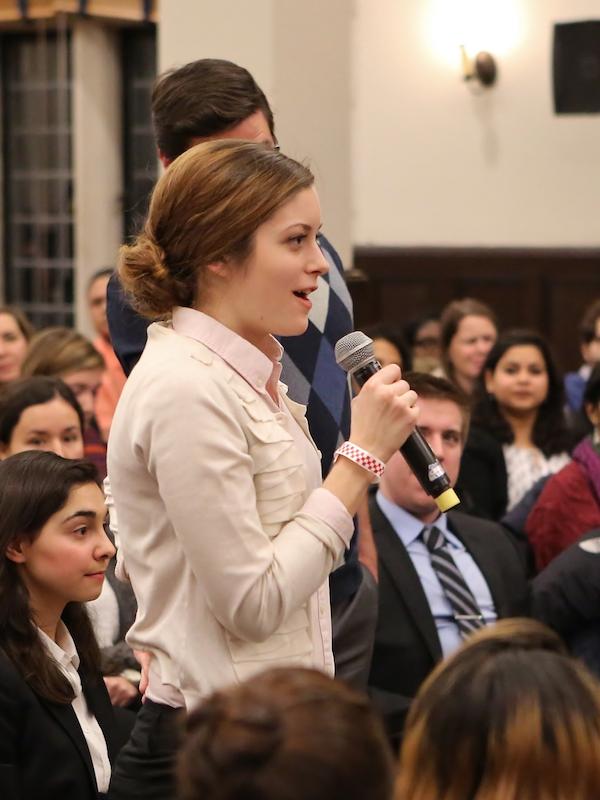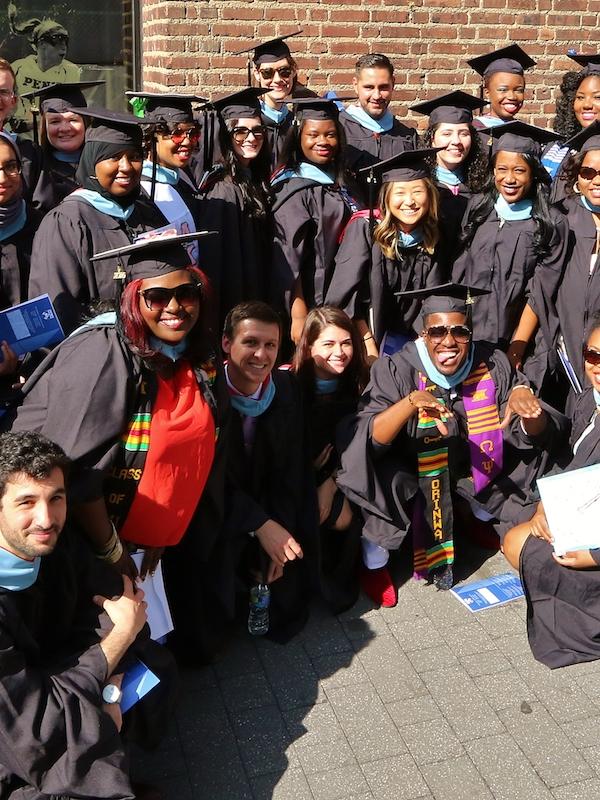Using Data to Guide Policies
“There will be lots to track and study.”
by Lini S. Kadaba

Photo courtesy of Mathematica Policy Research
The Every Student Succeeds Act (ESSA), signed in 2015, is poised to fully roll out in 2017 to replace the No Child Left Behind Act of 2001. It has the potential to significantly change K–12 education—and whether ultimately that’s for better or worse depends largely on the deft use of research and assessment to guide decisions, argues Irma Perez-Johnson, GR’08.
“There will be lots to track and study,” says Perez-Johnson, a vice president at American Institutes for Research (AIR) specializing in research and evaluation. AIR, a nonpartisan, not-for-profit organization based in Washington, DC, conducts behavioral and social science research domestically and internationally in the areas of health, education, and workforce productivity. It is one of the largest organizations of its kind in the world.
“The locus of control and decision-making is moving away from the federal level, or at least the federal level will have a more limited role,” Perez-Johnson says of ESSA. “States and local districts will have broader discretion on a host of policies.”
Will they stick with current Common Core State Standards? Or try “challenging state academic standards,” which can include subjects beyond math, language arts, and science? What will individual states emphasize for students to learn and master? Which strategies will states—or even individual principals and teachers—use to intervene in low-performing schools and make improvements?
Examining what happens next will be key to ensuring data-driven decisions in the years ahead, according to Perez-Johnson. “We have not uncovered any silver bullets that will help us immediately transform education,” she allows, “but we have found some things that help us make progress. It would be a pity if we failed to build on the knowledge base that has been established.”
Looking ahead, Perez-Johnson also says that U.S. Secretary of Education Betsy DeVos’s expected emphasis on vouchers to expand school choice to private schools should receive close scrutiny. Evidence on the effectiveness of different types of schools—public, charter, or private—is limited and mixed, with wide variability, she says. “Widespread use of vouchers would represent a bold change in education policy,” she states. “It would be very important to study the effects of such an approach.”
For more than twenty years, Perez-Johnson has built a career using data to figure out what works and what doesn’t. At Mathematica, a nonpartisan, international research organization where Perez-Johnson was a senior researcher and board member, she focused on the evaluation of labor and educational initiatives. She looked at why gaps in student achievement persist and examined the effectiveness of Race to the Top and School Improvement Grants, as well as data-driven instruction.
Perez-Johnson says that earning her Ph.D. in education policy at Penn GSE bolstered her understanding of new research methodologies. “It was wonderful to be embedded within the Graduate School of Education among individuals who thought about education from different angles,” she says.
The experience left her as committed as ever to policy making guided by proof. “Ultimately, that’s the best way to invest resources,” she says.
This article originally appeared in the Spring 2017 issue of The Penn GSE Magazine.




